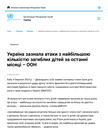Click to expand Image
Moapa-Paiute Community Center at the Moapa River Indian Reservation in Moapa, Nevada, June 14, 2022.
© 2022 Wade Vandervort/Las Vegas Sun via AP Photo
Nearly 100 years ago in June 1924, the US Congress passed the Indian Citizenship Act, granting citizenship to the Indigenous peoples who had long lived on the land that became the United States. Nonetheless, some US states regularly denied Native citizens the right to vote through the 1960s, with Maine, Utah, and New Mexico being the last states to grant all Native citizens the right to vote. Even today some states continue to pass discriminatory legislation that violates the fundamental human right to vote.
Additionally, the US Supreme Court has eviscerated checks on discrimination, disempowering Native and other voters of color.
Despite this, Native people in Nevada offer an inspiring example of resistance and progress. In February, Tribal advocates in Nevada celebrated their first presidential primary with expanded voting rights, including the ability to register and vote with a Tribal ID and the creation of automatic on-reservation polling places – products of Indigenous-led organizing, legislation, and litigation.
A Tribal leader told Human Rights Watch that, for the first time during a presidential election, the Shoshone-Paiute Tribes of Duck Valley have an on-reservation polling place. Previously, Tribal members drove nearly two-hours roundtrip to vote. Native advocates have long expressed the view, confirmed by our own research, that voting in-person, at polling places on or near reservation land, is particularly important for Native voters who distrust US government systems.
Despite this win, according to Tribal leaders, the Tribe faces implementation issues as the majority white Elko County, where the reservation is located, neglects to fully ensure in-person voting rights by failing to offer equal training for Tribal poll workers, pay a Tribal poll worker promptly, and assist in ballot box removal.
For centuries, Indigenous communities in the US have endured human rights abuses. States like Utah, Wyoming, New Mexico, North Dakota, and South Dakota have a long history of discriminating against Native voters and, since 2020, have adopted measures and legislation that disenfranchise Native voters. Beyond these technical legislative barriers, Native voters face systemic racism and marginalization.
At the centennial of the Indian Citizenship Act, marked by a US presidential election year, US states and the federal government should enact legislation to protect and expand voting rights for Native people. Federal protections should include passing the Native American Voting Rights Act. State and local level officials should ensure on or near reservation in-person polling locations, allow for the full use of Tribal IDs, and ensure Tribes have equitable and accessible access to electoral procedures.



